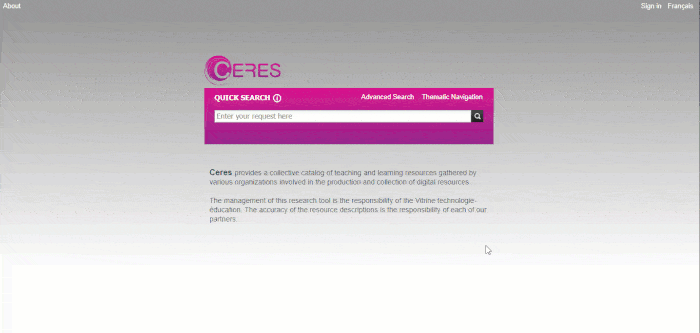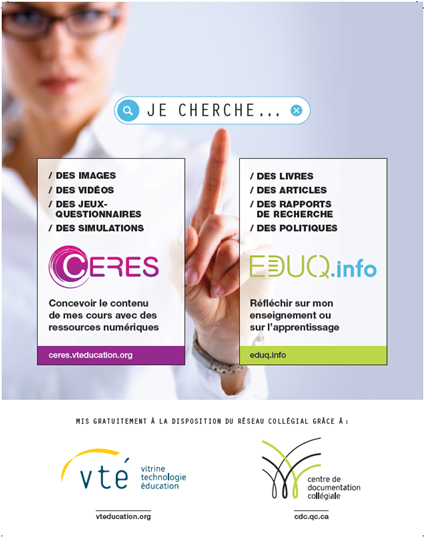Making Sense of Educational Resources: OERs, DERs, TLRs — An Interview with Pascale Blanc from la Vitrine technologie-éducation
TLR, OER, DER… These are acronyms that we are hearing more and more, without necessarily understanding what they mean. To learn more, I interviewed Pascale Blanc, the Coordinator of the VTÉ (Vitrine technologie-éducation).

Pascale Blanc, Coordinator of VTÉ
TLRs: Teaching and Learning Resources
Pascale explains to me that the definition itself of TLR (teaching and learning resource) may vary. A TLR, a priori, is a resource used by a teacher who shares it with their students within the context of a teaching or learning activity.
A TLR can take on different forms:
- Written documents
- Videos
- Audio files
- Illustrations, photos
- Animations
- etc.
A TLR can be:
- Exercises
- Quizzes
- Presentations
- etc.
TLRs are meant to be “small things.” However, some definitions of TLRs are much larger in scope. They can sometimes be software, or digital textbooks… and even MOOCs (Massive Open Online Courses) which are free courses available to anyone interested).
Where can I find TLRs?
VTÉ manages CERES, a catalog of TLRs assembled by different organizations. CERES provides access to close to 40,000 TLRs on all sorts of subjects.

Searching within the CERES catalogue
The TLR that CERES refers to you can come from various databases. For example, CERES crawls content (photos, illustrations and videos) from the World of Images directory developed by the CCDMD (Collegial Centre for Educational Material Development), or from Canal-U, the higher education digital film archive from France.
OERs: Open Educational Resources
According to UNESCO, Open Educational Resources (OERs) are teaching, learning and research material which exist in the public domain or which have been published with an open licence.
This open licence confers free permission in perpetuity to:
- Access the resource
- Use the resource
- Adapt the resource
- Redistribute the resource
Since OERs can be teaching and learning resources, they include TLRs. The OERs can be in a digital or other format.
The OERs are often identified as such using a Creative Commons (CC) licence. However, certain resources distributed under a CC licence are not entirely open: many can not be modified or used for commercial purposes.
According to Pascale Blanc, for a resource to be completely open (libre in french), it must include the permission to be modified and integrated into other resources. Pascale explained this to me, and had me reflect on the advantages and disadvantages for an author to opt for a commercial-use licence. This is the subject of another article: — Open Educational Resources (OERs) — An Interview with Pascale Blanc from La Vitrine technologie-éducation. A must-read if you are thinking about distributing your material with a CC licence!
DERs: Digital Educational Resources
Digital Educational Resources, for their part, can be:
- TLRs
- Documentary resources that support your teaching (pedagogical research report, research policies, etc)
- Software
- Textbooks
- etc.
They can be open or not. Profweb publications are an example of DERs, as well as the 35 000 documentary resources produced by the Quebec college network that are referenced in the EDUQ.info catalogue by the CDC (Centre de documentation collégiale).
How to share the resources that were created?
Did you create a DER that you would like to share? How should you proceed?
- If it is a documentary resource (thesis, dissertation, research report), you can submit it to EDUQ.info.
- If it is an image or a royalty-free video (for non-commercial use), submit it to World of Images.
- If it is a TLR in another format, contact the library at your college to see how you can have your resource catalogued by CERES or send a message to info@vteducation.org.


